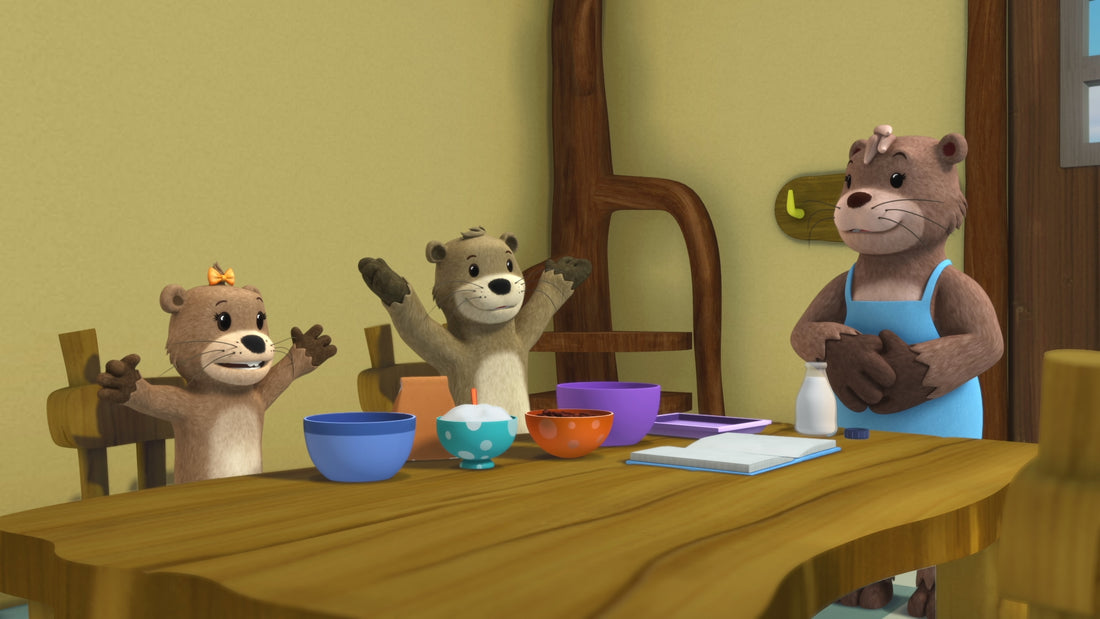
Positive Parenting
Written by Natascha Crandall, PhD. - Educational Curriculum Consultant

So much of how parents communicate to their children – both verbally and through gesture – is in the negative. Listen for it in your day and clock how many times you say a no or a don’t to your child. We tell them what they shouldn’t be doing - Don’t touch that, no hitting, no biting, stop that, don’t talk back. These are all necessary words, but we have to consider that the word ‘no’ evokes a powerful response in everyone – both children and adults. It’s one of the first words young children learn and one that they hear – and repeat – often. What do preschoolers internalize when we say no to them? How do they process what we are attempting to communicate? If all you heard was what not to do, how would you know what you could do? If someone tells you “don’t sit, stand up” you have to process what you will do- will you sit down or lay down? If someone says “don’t go in there” do you go somewhere else or stop altogether? If you tell a child not to hit, he or she might think “Well can I kick?”
Psychologists have been researching this area, and have found that “Positive Parenting” may be more effective in helping children learn appropriate behaviors. This principle assumes children are born with the desire to do the right thing. It is all about fostering respectful relationships built on clear expectations. It's about guiding children to act the way you want by showing them love, warmth and kindness. Some parents may worry that positive parenting is too “fluffy,” believing that children won’t learn to interpret and react to negative emotions if parents don’t help them to see it. They worry this may not serve them well later in life. However, psychologists have found that positive parenting can promote children’s confidence and provide them with the tools needed to make good choices. It also nurtures their self-esteem, creativity, belief in the future and ability to get along with others.
It’s not as if there is no place for ‘no’ in parenting. Not everything in life is a yes. For a child, learning to accept no from someone is a prelude to learning how to say no to themselves. However, too many ‘no’s’ can have a negative effect on children and how they respond to us as authority figures. Using ‘no’ too often can desensitize a child to its meaning, and if you say ‘no’ too often, your child may stop asking.
To help guide children, it may be better to use more do words than don’t words. Rather than disciplining and teaching them by telling them what not to do, it can be much more effective to tell them what we want them to do. It is easier for young children to follow directives such as “stand on the floor not the couch” rather than “don’t stand on there” and “stay in here” rather than “don’t go.”
Positive parenting is an empathy-based approach that involves techniques such as encouragement and problem-solving — rather than shouting, hostility, shaming or leveraging rewards. Parents who practice positive parenting may be able to proactively fulfill their child’s emotional needs through positive interactions, which can often prevent bad behaviors in the first place. So it is worth giving it a try! Next time you want them to stop doing something, start with what you want them to do and see the response. If it works, praise them- and yourself- for making a positive change!
On Zoonicorn, we embrace these principles of positivity by illustrating for our young viewers the power of optimism and resilience. We work hard to help our audience recognize what they can do and what they are capable of, not what they can’t do or shouldn’t do. We all make mistakes – including the Zoonicorns. But, with the right guidance, everyone can discover the power within themselves to grow and learn.
